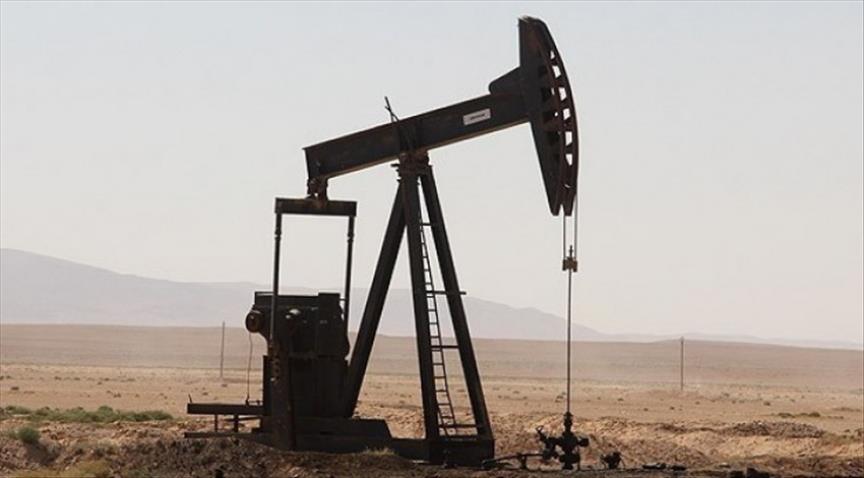Turkish Petroleum (TP) plans drilling in offshore Turkey in the upcoming years in accordance with a directive from Turkey's Energy and Natural Resources Ministry, TP CEO and Chairman, Besim Sisman, told Anadolu Agency (AA) Monday.
Speaking exclusively to AA, Sisman said that they will continue operations both onshore and offshore Turkey in line with the ministry's targets.
TP, a state controlled national oil company, spearheads Turkey's domestic and international exploration and production activities by cooperating with international oil companies such as Shell, Halliburton and Chevron.
"Energy Minister Berat Albayrak suggested that we make more aggressive investments inside the country. With this instruction, we decided to speed up our work inside Turkey," Sisman explained.
Turkey, with its limited natural resources, is heavily dependent on energy imports and strives to diversify its energy mix.
Sisman said that TP will focus on work in offshore Turkey.
The company had previously conducted drilling works with Shell in the country's northwestern region, off the coast of Sile in the Black Sea. On Feb. 14, 2013, Shell and TP signed a joint operations agreement for deepwater exploration activities in the western Black Sea, which proved positive.
"The seismic data retrieved from the well in the Black Sea gave us very positive signals. We are considering drilling another well in the Black Sea with Shell in 2017, and if not, in 2018," Sisman said.
He also added that their operations in the Mediterranean are ongoing, raising the possibility of opening a new well in offshore Cyprus.
"We will also focus on the Mediterranean in line with instructions from our energy ministry. Evaluation of previous seismic work in the Mediterranean is continuing. The Barbaros Hayrettin Pasa exploration vessel will conduct further seismic work offshore the island of Cyprus, and after its completion, we may drill an oil well in offshore Cyprus," Sisman noted.
He said the recovery in oil prices would help speed up offshore investments in the future which are more expensive than onshore work.
"A 1.5 thousand to two thousand meters of deep sea drilling in the Black Sea and Mediterranean might cost between $200 and $300 million so you have to operate deep sea activities with partners," he explained.
In the current conjuncture with sliding oil prices, TP will prioritize the investments which will balance production and which will not cause production losses, according to Sisman.
"In the next few years, TP will continue domestic production at the level of 13 million barrels. However, we will focus more on oil exploration. Our aim is not to drill too many wells, but to drill the proper wells," he affirmed.
- Foreign operations
Sisman said that TP is not limiting its activities to Turkey alone, and cited its presence in Azerbaijan, and its ambitions to enter markets in close proximity such as Iraq, Iran and Libya.
"We have big investments in Azerbaijan. Our foreign investments total $11 billion out of which $10 billion are in Azerbaijan. In addition to these investments, we believe that Turkey and TP should be active in its nearby geography. With this, we mean Iraq, Iran, and when the conditions get better, Syria," he said.
In August 2014, Turkey signed an agreement with Azerbaijan, raising its shares in the Trans Anatolia Natural Gas Pipeline (TANAP), which carries Azerbaijani gas from the massive Shah Deniz offshore natural gas field to Europe. The agreement allows Turkey to revise up its ownership rights from a 9 percent share to a 19 percent stake, making it the second largest shareholder after British Petroleum (BP).
TP also has a 6.8 percent interest in the Azeri-Chirag-Gunashli (ACG) oil field, which accounts for about three-quarters of Azerbaijan's petroleum and other liquids production in 2015. Other shareholders include INPEX, Norway's Statoil, Japanese ITOCHU and India's ONGC Videsh Limited.
"Along with these opportunities, we also have interests in oil reserves in offshore Libya. However, Libya unfortunately has not the stability to continue this work yet. If conditions improve, we would like to be involved in the offshore projects in this country. We are now at a decision stage considering whether we should continue our work in Libya at present," Sisman added.
Work in Kirkuk in northern Iraq is continuing on from the previous drilling of almost 20 wells through Turkish Petroleum International Company (TPIC), Sisman said.
"We have not yet had much difficulty in Iraq. The only activity that has been damaged by the situation in Iraq is the gas project in Mansuriya. This project was affected by Daesh attacks, but we hope we will reach a decision together with the energy ministry on this venture soon," Sisman concluded.
In October 2010, TP won the tender offered by the Iraqi Oil Ministry for the operation of the Siba and Mansuriya natural gas fields. The Siba field is located in the Basra Governorate and has natural gas reserves of nearly 43 billion cubic meters, while reserves of the Mansuriya field, located in Diyala province, amounts to around 128 billion cubic meters.
By Ebru Sengul & Baris Saglam
Anadolu Agency
ebrusengul@aa.com.tr
baris.saglam@aa.com.tr


